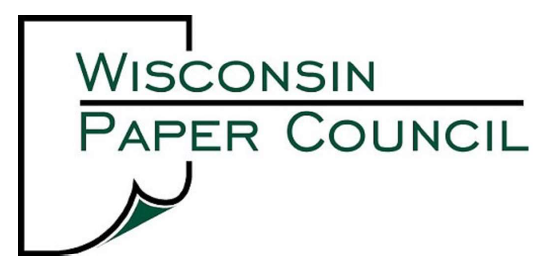Statewide, the forest industry in Wisconsin provides more than 64,000 jobs and has an output of $24.7 billion.
The WPC represents its members in forestry-related legislative and regulatory affairs seeking sound public policy for papermakers, the forest products community, and all who appreciate the benefits to society of sustainable, productive forestry.
All wood fiber, whether logs, market pulp or recycled fiber, originates in forests. Wood fiber is the paper industry’s most basic resource and indispensable ingredient. The Wisconsin Paper Council’s forestry focus is on assuring that a predictable, economical supply of pulpwood is available from public and private resources to produce commercially suitable wood fiber for society’s diverse paper and wood product needs.
Sustainablity is the Future
Our trade association recognizes the diverse benefits that sound forestry produces: protection and enhancement of water, air and soil quality, producing habitat for diverse flora and fauna; aesthetics and recreation including hiking and trail use, hunting and fishing, camping, and nature appreciation.
We proudly partner with other forest industry advocacy organizations including the Great Lakes Timber Professionals Association, Lake States Lumber Association, Lakes States Federal Timber Purchasers, Wisconsin Consulting Foresters, the Wisconsin Council on Forestry, and the Wisconsin County Forests Association.
WPC also participates on educational advisory committees to LEAF (Learning, Experiences and Activities in Forestry) at the Wisconsin Center for Environmental Education at UW-Stevens Point and Project Learning Tree. Working together with a wide diversity of forestry organizations, the Wisconsin Paper Council continues to be a leader in sustainable forestry advocacy.
The Sustainable Forestry Initiative (SFI®) provides about $200,000 in educational and research grants to forestry-focused organizations annually.
The WPC is a critical link in sustainable forestry certification in Wisconsin.
The SFI is a North American forest certification standard and program of SFI Inc., a non-profit organization. The SFI is the world’s largest single forest certification standard by area. The SFI is headquartered jointly in Washington, D.C., and Ottawa, Ontario.
Providing SFI Grant Opportunities
The WPC plays a very important role with SFI by providing coordinator and secretary/treasurer services to the SFI Implementation Committee. This committee is responsible for awarding annual grants to organizations that support SFI values and objectives which include four categories:
Forest professionals education & training
Private non-industrial forest outreach
Public & educational outreach
Forestry research
SFI grants have been awarded in recent years to: Camp Five Foundation, FISTA (Forest Industry Safety & Training Alliance), Glacierland RC&D, LEAF (Learning Experiences About Forestry) at the UW-Stevens Point/Wisconsin Center for Environmental Education, National Council for Air & Stream Improvement, Ruffed Grouse Society, Trees For Tomorrow, USDA. – Forest Service, Wisconsin Department of Natural Resources, Wisconsin Master Loggers Certification, Wisconsin Tree Farm Committee and Wisconsin Young Forest Partnership.
Ensuring Consistent Forestry Practices
The Wisconsin SFI also operates an “inconsistent practices” program which provides individuals concerned about a specific forestry activity an opportunity to report it. If it involves SFI trained loggers or a wood utilizing company that is SFI certified, the call will result in an investigation, report to inquirer, and if an inconsistent practice is detected, corrective recommendations to those responsible.




